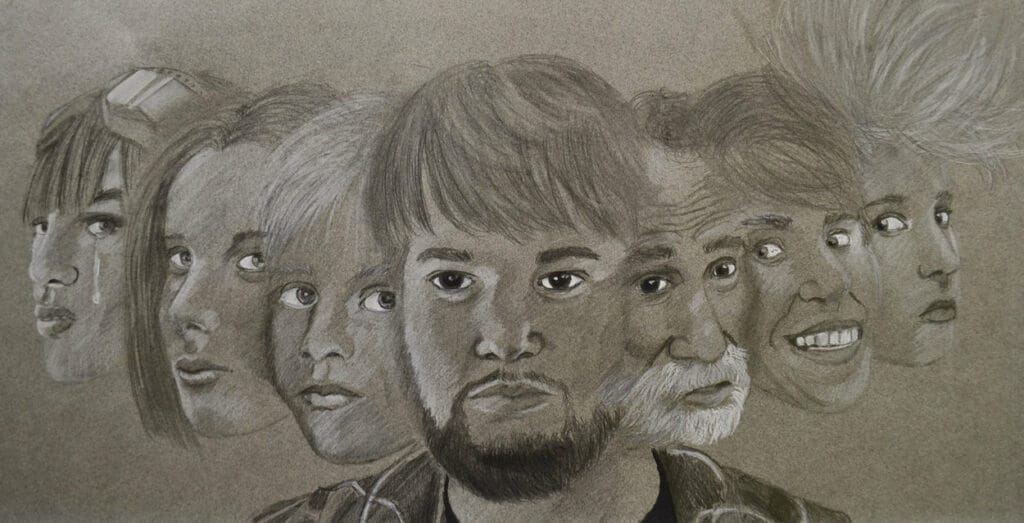
Dissociative Identity Disorder (DID), formerly known as Multiple Personality Disorder, is a complex mental health condition. It affects how a person experiences identity, memory, and consciousness. Individuals with DID have two or more distinct identities, also called alters. These alters control behavior at different times, leading to significant disruptions in daily life.
Symptoms of Dissociative Identity Disorder
Recognizing DID can be challenging because symptoms vary widely. However, some common signs include:
- Memory Gaps: Individuals may experience blackouts or forget important events, including personal information.
- Distinct Identities: Different alters may have unique names, voices, mannerisms, and preferences.
- Depersonalization: A person may feel detached from their own thoughts, emotions, or body.
- Derealization: The world may seem unreal or distorted.
- Severe Anxiety or Depression: Many individuals with DID struggle with mood disorders.
- Self-Harm or Suicidal Thoughts: The distress caused by DID often leads to emotional and physical harm.
Causes of Dissociative Identity Disorder
DID typically develops due to severe trauma, usually during early childhood. The most common causes include:
- Repeated Physical or Sexual Abuse: Children who endure extreme trauma may dissociate as a coping mechanism.
- Severe Neglect: Emotional or physical neglect can contribute to the formation of alters.
- Exposure to Violence: Witnessing or experiencing intense violence may cause dissociation.
- Lack of Stable Attachment: A child who lacks a safe and supportive environment may create different identities to survive emotionally.
How Dissociation Works
Dissociation serves as a defense mechanism. When a child faces overwhelming trauma, the mind creates separate identities to protect itself. These identities help the person function, but they also cause confusion and distress later in life. The brain essentially walls off memories and experiences, making them inaccessible to the main personality.
Treatment Options for Dissociative Identity Disorder
While DID is a challenging condition, treatment can help individuals integrate their identities and regain control. Common treatment approaches include:
Psychotherapy
Therapy plays a crucial role in treating DID. Different forms of therapy include:
- Trauma-Focused Therapy: Helps individuals process past trauma safely.
- Cognitive Behavioral Therapy (CBT): Addresses negative thought patterns and coping strategies.
- Dialectical Behavior Therapy (DBT): Improves emotional regulation and distress tolerance.
- Eye Movement Desensitization and Reprocessing (EMDR): Reduces trauma-related symptoms.
Medication
Although no medication specifically treats DID, doctors often prescribe antidepressants or anti-anxiety medications. These help manage coexisting conditions like depression and anxiety.
Building a Support System
Having a strong support network makes a significant difference. Family members, friends, and support groups can provide understanding and encouragement. Educating loved ones about DID helps create a safer and more supportive environment.
Living with Dissociative Identity Disorder
People with DID can lead fulfilling lives with proper treatment and support. Recovery focuses on integrating identities, improving emotional stability, and reducing dissociative episodes. Consistent therapy, self-care, and strong social connections contribute to long-term well-being.
Final Thoughts
Dissociative Identity Disorder is a serious but treatable condition. Recognizing the symptoms, understanding its causes, and seeking appropriate treatment can significantly improve a person’s quality of life. If you or someone you know shows signs of DID, reaching out to a mental health professional is the first step toward healing. With the right support, individuals with DID can regain control and live meaningful lives.
Dissociative Identity Disorder and Occult Practice: Working with Alters and Entities
Dissociative Identity Disorder (DID) is a complex condition where a person has two or more distinct identities, also known as alters. These alters often serve different roles and may hold unique skills, emotions, or even spiritual inclinations. For those practicing the occult, this dynamic adds both opportunities and risks when working with god forms, spirits, and other entities. Understanding these factors is essential for safe and effective magical practice.
The Role of Alters in Occult Practice
Each alter within a DID system may have different strengths, spiritual inclinations, and personal experiences. Some alters may naturally resonate with specific deities or spirits, making invocation or evocation more effective. Others may serve as protectors, ensuring boundaries remain intact during rituals.
When engaging in occult work, alters can contribute in different ways:
- Dedicated Alters for Rituals: Some alters may take the lead in magical work, specializing in invocation or divination.
- Channeling Entities: Alters with strong spiritual connections may serve as mediums for deities or spirits.
- Creating Balance in Work: Different alters can work together to create a well-rounded practice by balancing energies and intentions.
Invoking God Forms and Entities
Working with god forms while living with DID requires careful preparation. Alters may respond differently to various deities or spirits. One alter might feel drawn to the protective energy of Archangel Michael, while another might connect with the trickster energy of Loki. Recognizing these dynamics is crucial.
When invoking entities:
- Establish Clear Intentions: Ensure that all participating alters understand the goal of the ritual.
- Use Protective Measures: Shields, wards, and grounding techniques help prevent spiritual overwhelm.
- Communicate Internally: Internal dialogue between alters can prevent unexpected conflicts or unwanted spiritual interference.
Cautions and Risks
Practicing the occult with DID comes with unique challenges. While alters may enhance magical ability, they can also create risks if not managed properly. Some essential cautions include:
- Avoid Unverified Entities: Some spirits may take advantage of confusion within a system.
- Set Firm Boundaries: Ensure that only trusted alters participate in high-energy rituals.
- Track Magical Experiences: Keeping a journal helps maintain continuity between alters and ensures accountability.
- Recognize When to Pause: If an alter is uncomfortable or overwhelmed, it is best to step back and re-evaluate.
Final Thoughts
DID and occult practice can intertwine in powerful ways. Alters bring diversity, insight, and unique energies into spiritual work. However, safety, communication, and self-awareness are key to maintaining balance. By establishing strong boundaries and working with trusted entities, practitioners with DID can create a harmonious and enriching occult practice.

